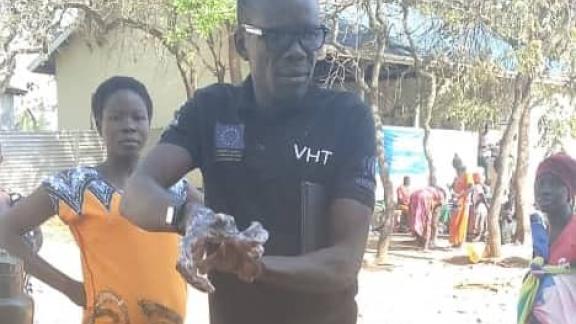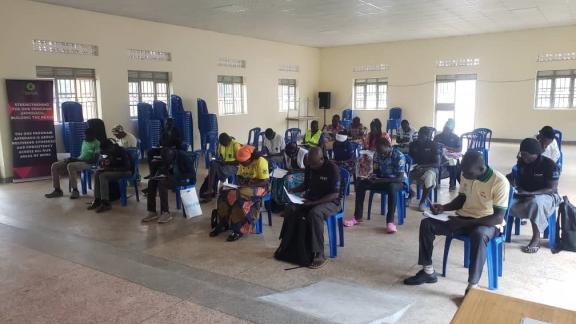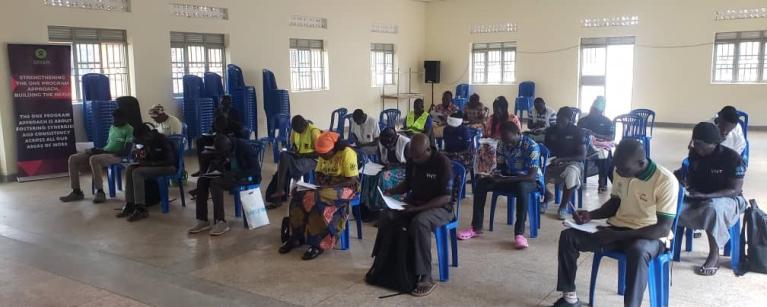Bidibidi refugee settlement in the Yumbe district of Northwest of Uganda, is home to over two hundred fifty thousand refugees and asylum seekers.
Frequent cross-border movements between Uganda, Congo, and South Sudan have contributed to recurring outbreaks of Mpox, measles, and animal diseases., These issues are further exacerbated by the continuous impacts of climate change on the region’s water, sanitation, and hygiene (WASH) infrastructure.
To address these pressing challenges, Oxfam, in partnership with UNHCR, the Office of the Prime Minister, IRC, district officials, and community leaders, launched the Integrated Risk Communication, Infection Prevention, and Control (IPC) - WASH Project.
The intervention seeks to strengthen infection control measures, improve access to safe water, and enhance community awareness of Mpox and other disease outbreaks in Bidibidi refugee settlement. The project adopted a participatory approach, collaborating closely with local stakeholders to identify existing gaps and develop targeted solutions.
The situation was particularly concerning at Iyete Health Centre III, one of the supported facilities in Bidibidi Refugee Settlement, Yumbe District.

A trained Volunteer Health Team (VHT) demonstrates on hand washing techniques during the outreach at Iyete health care facility in Bidibidi Refugee Settlement
When Mpox cases began emerging, the facility had no functional handwashing stations with many of the existing ones becoming unfunctional with time having been installed during the COVID-19 outbreak response in 2020-2021.
Without early detection of cases, community members were at greater risk, and health workers struggled to contain the spread of infections.
“The Village Health Teams (VHTs) working closely with the communities didn’t also know Mpox and how to differentiate between Chicken pox and Mpox”
Working with other partners and key stakeholders, including the district local government, Oxfam stepped in to train health workers and communities, who actively participated in a rapid assessment, identifying the most critical areas needing intervention.
The VHTs received training on identifying Mpox symptoms and case management, while continuous medical education sessions helped strengthen the capacity of health centre staff.
The project also supported community awareness campaigns through radio talk shows, boda-boda sensitization sessions, and community outreach programs to sensitize communities to critical health information on Mpox.
Additionally, cleaning tools and detergents were provided at Iyete Health Centre III, and new handwashing facilities were installed at the same facility to improve hygiene practices.

VHTs undertake a pre-test for the training on Mpox concepts
These efforts have yielded positive results. With improved community surveillance, cases of Mpox are now being identified and reported more efficiently.
Since the beginning of the Mpox outbreak, Yumbe district has recorded six confirmed cases, with 140 suspected cases investigated and 131 laboratory results received.
The strengthened referral system in the communities through VHTs meant that suspected cases were quickly flagged and tested, allowing for faster response and containment.
According to Mambo James, the project has also contributed to a significant shift in health-seeking behaviour.
“Both refugees and host community members are now more proactive in recognizing symptoms and seeking medical attention. At Iyete Health Centre III, handwashing has become routine practice, reducing the risk of infecting others”
James adds that the focus is now on sustaining positive behavioural changes. He says the communities and the VHTs have been equipped with knowledge from the training sessions, enabling them to identify and refer cases in the communities effectively.
